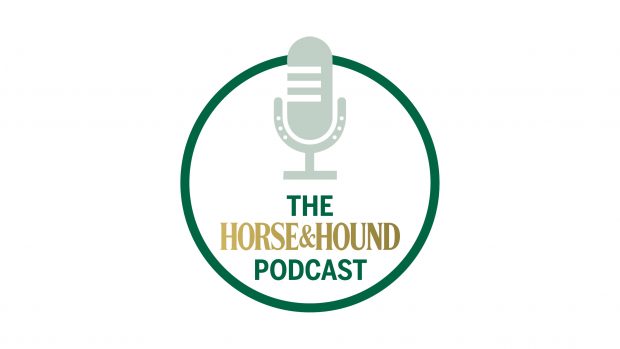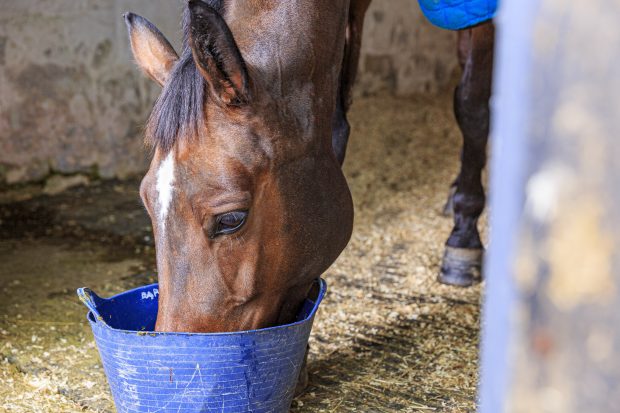Redwings Horse Sanctuary is home to more than 1,000 horses, ponies and donkeys. With admissions often being old and neglected, feeding and veterinary care are of paramount importance.
Horses that are prone to weight loss need careful attention over the winter to ensure they remain healthy. The vets and staff at Redwings work closely with the nutritionists at Spillers to ensure the best possible nutrition is provided.
Fourteen-year-old Welsh Mountain Pony Icky (pictured) is a typical example of a rescue horse who benefited from Spillers Conditioning Mix. He was rescued from the back of a dealer’s lorry in poor condition. Icky, who is now used as a guinea pig at Intelligent Horsemanship demonstrations, has been at Redwings for five years and is up for adoption.
At Redwings staff begin by investigating whether the weight loss is due to management problems prior to the horse joining the sanctuary, general old age or disease.
As a rough guide, horses that have lost weight due to management problems are interested in eating food when it is available.
Horses suffering from disease are usually thin because food is available but not eaten, or not metabolised properly. In older horses poor dentition and absorption can play a role. Often a lack of condition is due to combination of factors.
When a horse loses weight, it loses fat first, and then muscle tone. A horse normally has large fat reserves. Several kilos of fat will be lost by the time weight loss is evident.
If your horse is prone to weight loss or you think it has occurred, it is important to monitor their weight regularly. This best done with weighbridge, however these are notavailable to all horse owners.
Alternatively, a weigh tape can be used – these can be purchased from most feed companies or local tack shops. Used at the same time each week these are about 90% accurate.
Adding weight
- Offer ad lib hay or haylage to provide extra roughage and nutrients where grazing is lacking or nonexistent. These may not have the feed value of fresh grass, but they do provide gut fill, and central heating, as the process of fermentation in the hindgut generates heat.
If your horse is a shy forage feeder and does not seem keen to consume hay or haylage ad lib, try Spillers Happy Hoof, Happy Days or Readigrass as partial hay replacers. All of the above productscan be used alongside hay and hard feed to provide a palatable alternative to hay or haylage.
- Feed more of your usual feed. Low energy feeds, particularly cubes, can be fed from 1 kg to 6 kg without creating an unrideable monster. Increasing from 1.5 to 4.5kg of Spillers High Fibre Cubes, the most popular feed used at Redwings, can provide up to 30% more calories.
As these feeds are higher in fibre, and lower in starch, they will reduce the chances of bad behavior occurring as feed rates increase.
For horses and ponies with bad teeth as with a lot of the older horses and ponies at Redwings, the High Fibre Cubes can be fed soaked into a mash with warm water.
- Owners already feeding 2-3kg of feed to a horse that’s dropped weight can put it back on quickly with a conditioning feed, such as Spillers Conditioning Cubes — also used successfully at Redwings. As condition comes from a balance of energy and protein together, look for feeds rich in both of these nutrients. You don’t need a lot of conditioning feed to see a difference.
Spillers Conditioning Cubes used in conjunction with Spillers Horse and Pony Cubes or alone, depending on the amount of condition you wish to build, will enable you to see a difference in a couple of weeks.
- Lastly if you are unsure whether your feeding regime is correct for your horse and would like some advice in putting together your horse or ponies diet, contact the Spillers Careline (tel: 01908 226626) where trained nutritionists are always on hand to help.
Read more expert advice on feeding underweight horses:




